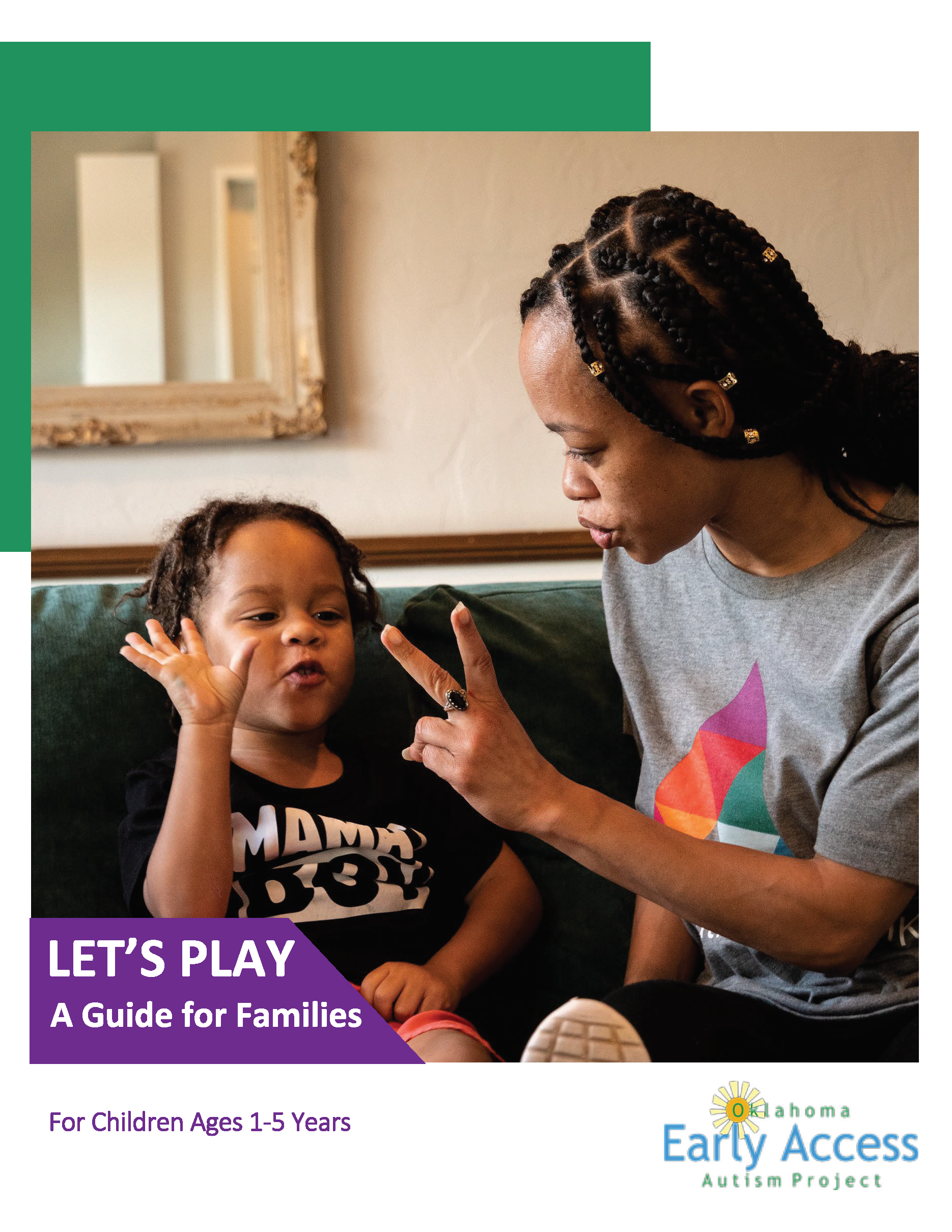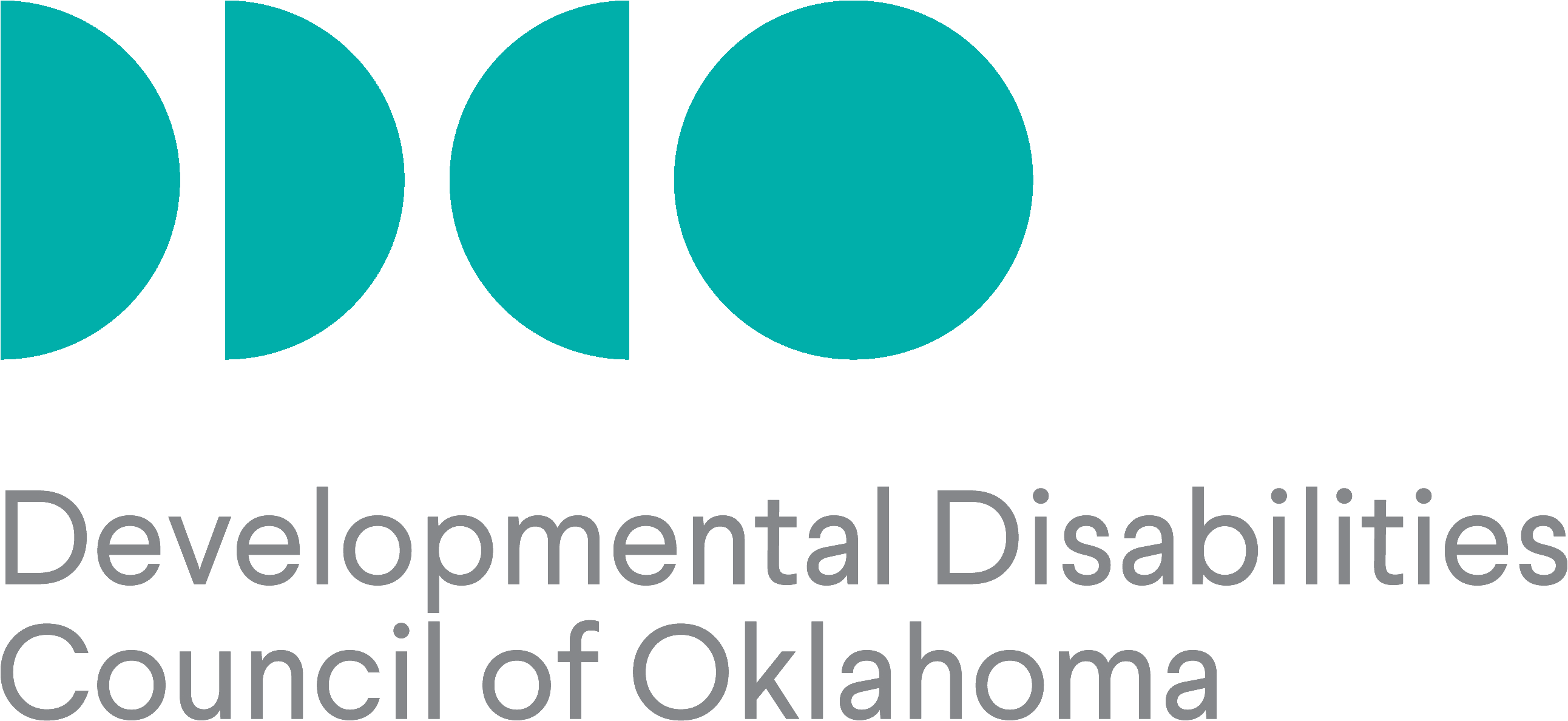Screenings • Awareness • Outreach
Improving Access to Early Screening and Connection to Needed Services
The Early Access program works with Oklahoma communities to meet the needs of young children with autism spectrum disorder (ASD) and their families, by improving access to early screening and connection to needed services. The program offers:
- A statewide autism outreach and awareness campaign, including training on the early signs of autism
- Free screening and referral services for autism
- Training and support for a network of providers to conduct screenings in local communities
Why is early identification so important?
The first few years of life represent a crucial period for optimal brain development for young children. To ensure the best outcomes, it is important to identify children who are showing signs of autism and other developmental disorders at the earliest age possible. The first steps in this process are awareness of developmental milestones and developmental monitoring.
Early Access is provided and funded by the Developmental Disabilities Council of Oklahoma, supported in part by grant numbers 2001OKSCDD, 2101OKSCDD and or 2201SCDD, from the U.S. Administration for Community Living, Department of Health and Human Services, Washington, D.C. 20201. Grantees undertaking projects with government sponsorship are encouraged to express freely their findings and conclusions. Points of view or opinions do not, therefore, necessarily represent official ACL policy.
What are Developmental Milestones?
Developmental milestones are skills that most children achieve by a certain age. Children reach milestones in how they play, learn, speak, act, and move. Skills such as beginning to babble at 4 months, using fingers to point by 9 months, and waving “bye-bye” by 18 months are some common developmental milestones. Children develop at their own pace, so it’s difficult to tell exactly when a child will learn a given skill. However, age-specific developmental milestones give a general idea of the skills to expect.
Parent-Engaged Developmental Monitoring
Families know their children best and developmental monitoring by the family provides a structured way to track their child’s physical, mental, social, and emotional well-being. Monitoring developmental milestones, using a simple milestone checklist, helps families know what skills are typical for their child’s age and what to expect next. It also helps them know when to act if they have a concern or if there are signs of possible developmental delays so they can get the services and supports they need as early as possible.
If a child is not meeting the milestones for his or her age, or if a family thinks there could be a problem with a child’s development, it is important that they contact their primary healthcare provider or a program for developmental screening and follow-up.
If you have concerns about your child’s development
- Speak to your pediatrician
- Seek an autism screening

As a companion to the CDC’s Learn the Signs. Act Early. materials, we have created a play-focused guide for parents of children ages 1 to 5. This books is full of play activities that you can do with things you already have in your home, and it will give you opportunities to observe, encourage, and participate in your childs growth as they reach developpmental milestones.
Ten Early Signs of Autism
-
Does not react to caregiver reaching to pick him or her
-
Rarely imitates expressions
-
Delayed or infrequent babbling
-
Does not respond to his or her name
-
Does not gesture to communicate
-
Poor eye contact
-
Seeks your attention infrequently
-
Unusual body movements
-
Does not reach up when parents try to pick him or her up
-
Delays in motor development
Autism Screenings
Screening provides families who have concerns about their child’s development a quick and efficient way to find out if their child is showing signs of autism and needs further evaluation. Screening is not the same as a diagnostic evaluation and cannot identify whether a child does or does not have autism. Instead, screening is a tool, or stepping stone, that can determine what the next step should be.
Screening can identify children who are showing signs of autism or other developmental delays, and indicate if further evaluation may be needed. Resources and referrals are also provided.
If a Child is Showing Signs of Autism
If a child’s screening results indicate signs of autism are present, parents should seek a more in-depth, comprehensive diagnostic evaluation performed by a specifically trained/licensed clinician (e.g., neuropsychologist, developmental pediatrician) who has both experience and expertise in diagnosing children on the autism spectrum.
Since waiting lists can be lengthy for clinical diagnostic evaluations, ask to be put on a provider’s cancellation call list so you can possibly be seen sooner.
Act Early. Don't Wait and See.
“Wait and see” is often a common approach from some pediatricians, therapists or other family members. Waiting can be very detrimental because it causes children to lose critical intervention time. Intervening early can change a child’s developmental path and improve long-term outcomes.
Call the Oklahoma Autism Center at (405) 842-9995 to schedule a screening.
Screening vs. Comprehensive Evaluation
Screening
- Screening utilizes brief, research- based developmental and autism-specific questionnaires about a child’s behavior and overall development.
- Screening can be performed by a doctor or nurse, but also by other trained professionals in education, healthcare, or early childhood services.
- Screening provides a quick and efficient way to find out if a child is at risk for ASD or other delays and in need of further evaluation.
Comprehensive Evaluation
- A comprehensive autism evaluation gathers information on a child’s medical, educational and social/behavioral history. It includes observation and interactions with the child and utilization of behavioral and autism-specific assessment tools.
- An evaluation is performed by a licensed professional who has both experience and expertise in diagnosing children with autism (e.g., child psychologist, developmental pediatrician, pediatric neurologists).
- An evaluation will provide a conclusive result as to whether a child has autism spectrum disorder and can provide a clinical diagnosis.
Read Our Blog Post: Five Things To Do While Waiting for Your Child’s Evaluation
Learn the Signs. Act Early.
The Centers for Disease Control and Prevention’s (CDC’s) health education program “Learn the Signs. Act Early (LTSAE)” provides free resources to families and professionals to encourage frequent and meaningful engagement in monitoring a young child’s development.
For Families
The program aims to promote awareness of healthy developmental milestones by offering free materials to families. These materials assist in tracking their child’s development and so they can act early if there are any concerns in order receive needed services. You can access these materials in English and Spanish.
Milestone Tracker App
The Milestone Tracker app, available in iOS and Android, was developed by CDC’s “Learn the Signs. Act Early.” program to help track developmental milestones in young children.
For Professionals
“Learn the Signs. Act Early” materials can be adapted and customized to help health professionals, early care and education providers work with families to track the development of the children they serve.
The free, online training course, Watch Me! Celebrating Milestones and Sharing Concerns provides tools and best practices for monitoring the development of children.
CDC’s Act Early Ambassador in Oklahoma
The OAC’s Director, Bonnie McBride is Oklahoma’s Act Early Ambassador. The Act Early Ambassador program is a collaborative effort of CDC’s National Center on Birth Defects and Developmental Disabilities, HRSA’s Maternal and Child Health Bureau, and AUCD. As Ambassador Dr. McBride works closely with the Early Access Program by bringing CDC’s LTSAE resources to Oklahoma in order to promote the message of the importance of early identification and taking action right away. Taking action right away makes a real difference.



